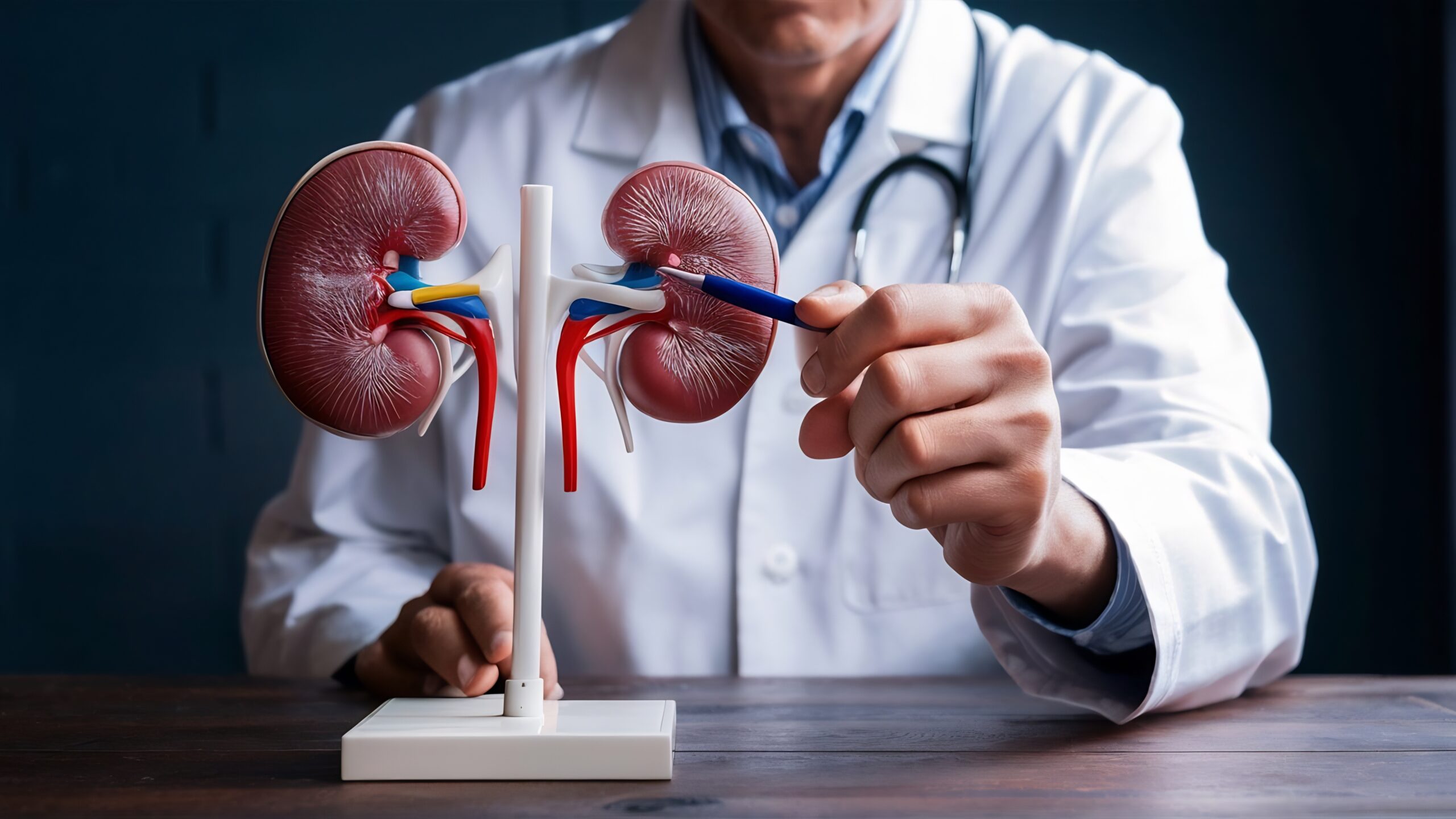
Chronic Kidney Disease (CKD)
Chronic Kidney Disease is a progressive condition where the kidneys slowly lose their ability to filter waste, excess fluids, and toxins from the blood. It often develops over months or years and is commonly caused by diabetes, high blood pressure, or chronic infections.
Early stages may show few symptoms, but as the disease advances, patients may experience fatigue, swelling, nausea, and changes in urination. If left untreated, CKD can lead to end-stage renal disease (ESRD), requiring dialysis or kidney transplantation.
Timely diagnosis and proper management—through medication, lifestyle changes, and regular monitoring—can help slow the disease and prevent complications.
Treatment Offered for Chronic Kidney Disease
Early Detection & Diagnosis:
-
Comprehensive screening and laboratory tests to identify kidney damage in the early stages.
Slowing Disease Progression:
-
Evidence-based treatment of underlying causes such as diabetes and hypertension using medications and lifestyle interventions.
Symptom Management:
-
Personalized care plans to manage fatigue, swelling, anemia, bone disease, and other complications of CKD.
Nutritional Counseling:
-
Diet plans designed by renal dietitians to reduce kidney strain and improve overall health.
Regular Monitoring:
-
Periodic assessments of kidney function, electrolytes, and associated risks to guide timely adjustments in care.
Preparation for Advanced Care:
-
Planning for dialysis access or renal transplantation in later stages to ensure a smooth transition if kidney function declines severely.